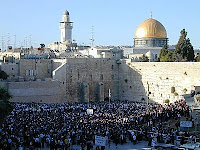Tuesday, December 30, 2008
Romans made resolutions during this time that had a moral tone like being good to others. Some made promises to the gods in hopes that they would grant a favor in return. The Romans also believed that breaking a New Year’s resolution brought bad luck. The Romans celebrated by decorating their homes and exchanging gifts.
The early Christian church was opposed to celebrating the New Year because of the pagan history. In the 1600s Puritans didn’t even say the name of the month January, instead saying, “First Month.” They encouraged their young people to skip the celebrations and meditate on the year past and the year to come. They once again adopted the practice of making resolutions by promising to make better use of their talents and gifts, and to treat others with Christian charity.
Whether we follow the revelry of the Romans or the practices of the Puritans, New Years is an obvious time to reflect on the old days and look toward the new ones.
The Bible doesn’t tell us about New Year’s Resolutions, but it has plenty to say about “newness.” In fact, God likes new things.
“Behold, I make all things new.” Revelation 21:5
“Put on the new man which was created according to God, in true righteousness and holiness...put on the new man who is renewed in knowledge according to the image of Him who created him…” Ephesians 4:24
“He is a new creation: old things have passed away; behold, all things have become new.” 2 Corinthians 5:17
Romans 6:4 reminds us that just like Christ rose from the grave to new life, we should “walk in newness of life.” As I look to 2009 I want to “walk in newness of life.” What a great New Year’s resolution! What a great new life purpose! What does this really mean though? There is a difference between “new” and “newness.” New things can quickly become old; however, the Greek word for “newness” in Romans 6:4 implies an ongoing quality. This verse declares that God’s purpose for us is to live an ongoing life of dependence on him, not one with fits and starts. Walking in newness of life means walking in step with God every day.
The activity of walking each day with Christ will need to become a habit. Experts say it takes about 21 days for a new activity to become a habit, and 6 months for it to become part of your personality. This is a reminder that habits take time to form, but as Colossians 3:23 & 24 state, “And whatever you do, do it heartily, as to the Lord and not to men.”
The true God of New Beginnings desires for all of us to resolve to walk in newness of life. It’s a resolution God expects us to keep!
For tools to help you assess your spiritual walk, you might check out the following resources.
Faith Assessment for Spiritual Health
http://www.lifeway.com/lwc/article_main_page/0%2C1703%2CA%25253D166429%252526M%25253D200809%2C00.html
Spiritual Growth Assessment Plan
http://www.lifeway.com/lwc/files/lwcF_PDF_DSC_Spiritual_Growth_Assessment.pdf
To share your New Year’s resolutions or to comment on this article, click on the title “Newness” and then scroll to the bottom of the page to “Comments.”
















